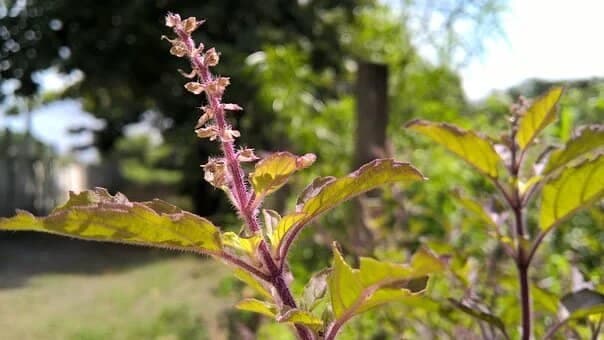Different types of Tulsi grown in India

Tulsi, rich in medicinal properties, is very important from the religious and scientific point of view. According to beliefs, Tulsi is worshiped as Lakshmi, while according to scientists, applying Tulsi in the house and courtyard purifies the air. Consumption of basil also increases immunity. Along with this, its leaves and extracts are also used in Ayurvedic medicines. In such a situation, the cultivation of basil can prove to be a profitable deal for the farmers. If you also want to earn more profit by cultivating basil, then before cultivating basil, you must be aware of its different varieties.
How many types of basil are there?
There are about 10 types of Tulsi in our country. It includes Shyam Tulsi, Ram Tulsi, White Tulsi, Lakshmi Tulsi, Bhu Tulsi, Neel Tulsi, Rakta Tulsi, Van Tulsi, Gyan Tulsi, Lemon Tulsi. Let us know about the characteristics of some major varieties of Tulsi.
Characteristics of major varieties of basil
-
Shyam Tulsi: It is also known as Kali Tulsi and Krishna Tulsi. The stem and leaves of this variety of plants are purple in color. It is more effective than other varieties. Its branches are 1 to 3 feet long and leaves are 1 to 2 inches long. It is most commonly used to get rid of phlegm and other diseases.
-
Ram Tulsi: Leaves of this variety of plants are light green in color and twigs are white to light green in color. It is more commonly used in skin diseases.
-
White Tulsi: This variety is also known as Vishnu Tulsi. It is used in children's cough, cough, cold, etc.
-
Van Tulsi: It is also known as Wild Tulsi and Tulsi Barbari. The height of this variety of plants is 60 to 90 cm. Its plants bear flowers and fruits throughout the year. The flowers are white, pink or purple in color with a scent.
-
Lemon Basil: This variety has the properties of both Tulsi and Lemon Grass. The leaves of this variety of basil are fragrant like lemon and are rich in vitamin A.
Read also:
-
Get the necessary information for Tulsi cultivation from here.
We hope this information will prove to be important for you. If you liked this information, then like this post and also share it with other farmers. So that other farmers can also take advantage of this information. Ask us your questions related to this through comments.
Please login to continue

Get free advice from a crop doctor
